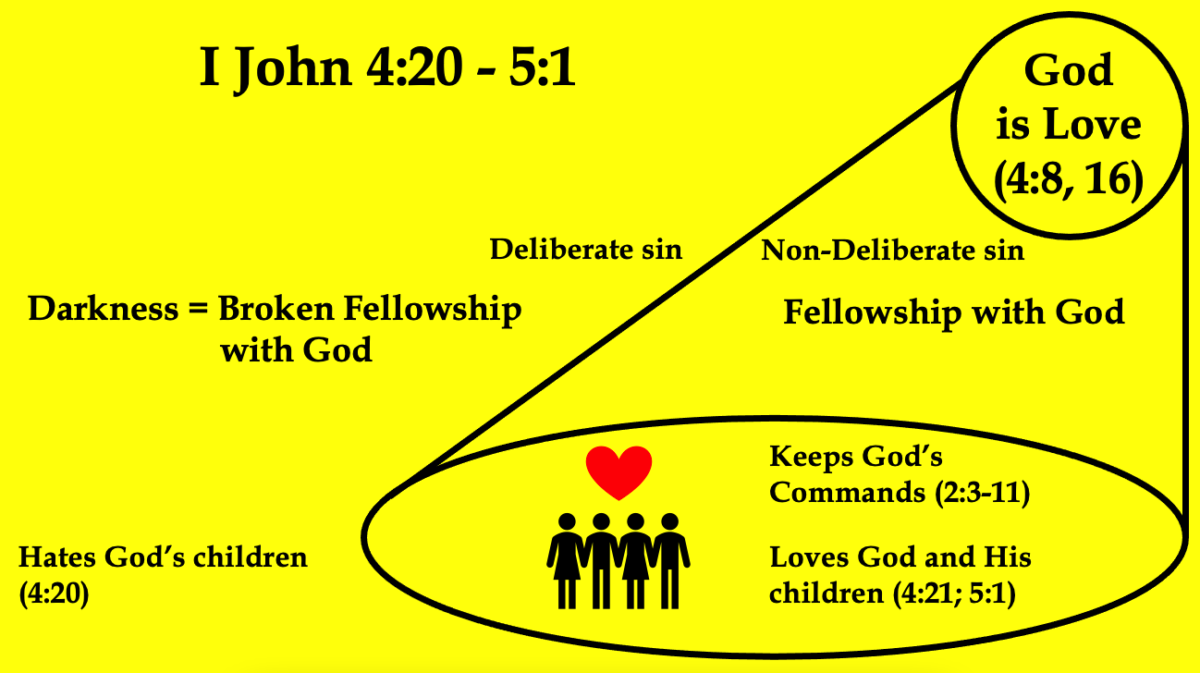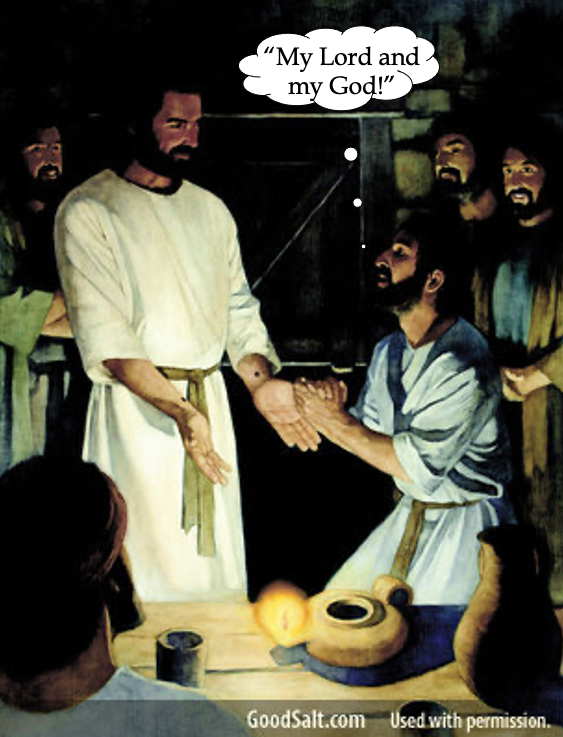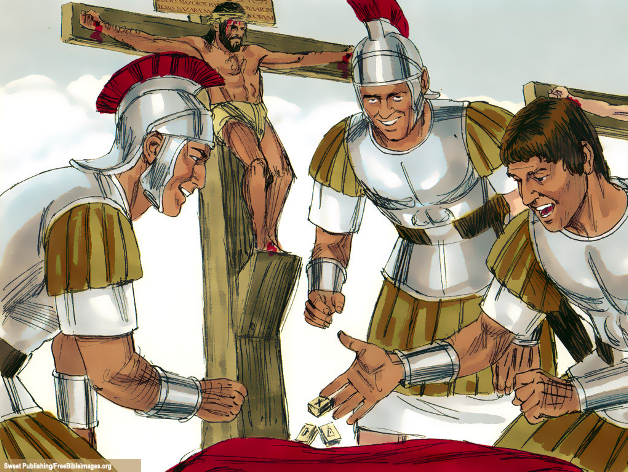“4:21 And this commandment we have from Him: that he who loves God must love his brother also. 5:1a Whoever believes that Jesus is the Christ is born of God.” I John 4:21-5:1a
When I was conducting discipleship training seminars in the Philippines, I would sometimes be asked by participants, “What if a person professes faith in Christ but does not go on to grow spiritually or produce fruit in their Christian life, are they truly saved?” This question assumes that a genuine Christian will grow spiritually or produce good works, and if he or she does not, then they are not saved. This kind of thinking is common among those who believe the book of I John was written to provide tests to see if you are genuinely saved and going to heaven when you die. 1 Those who hold this position would say if a professing Christian does not love his Christian brother, then he or she is not truly saved.
When I was asked this kind of question, I would encourage our seminar participants not to judge the professing Christian who doesn’t go on to grow in the Christian life. Instead, I encouraged them to ask the professing Christian three questions to help that person discern their own spiritual condition. 2
Does the professing believer believe the simplicity of the gospel? That is, do they believe that Christ paid the full penalty for their sins when He died on the cross and rose from the dead, so that God can now forgive them based on what He has done for them, not what they do for Him? A professing believer may not grow because they have not understood the gospel and believed in Christ alone for salvation and therefore do not have the Holy Spirit inside them to empower them to become more like Christ. If they do not understand the gospel, it is essential that we share the clear gospel of Christ with them so they may believe in Christ alone who died for their sin and rose from the dead to receive His gift of eternal life and the Holy Spirit to help them begin growing in the Christian life (cf. John 3:14-16; 7:37-39; I Cor. 15:3-6).
Have they been trained by a disciple of Christ since professing faith in Jesus? Too often the reason a new believer does not grow is because the church has neglected to come alongside of them to teach them how to live the Christian life. It is much easier to say a struggling new believer is not saved and evangelize him or her than it is to get more involved in their lives and disciple them. Also, it is unrealistic to expect new believers to be where we are at in a few weeks when it has taken us several years to grow to where we are at now.
Has the professing believer believed in Christ and then fallen away from the Lord? The Bible makes it clear that believers can fall away from the Lord and live contrary to His will. Examples include King Saul (I Samuel 28:4-19), King David (2 Samuel 11), King Solomon (I Kings 11:1-13), Ananias and Sapphira (Acts 5:1-11), the Corinthian believers who were factious, immoral, and prone to drunkenness (I Corinthians 3:1-6:20; 11:29-32), the Galatians who lapsed into the worst form of legalism (Galatians 1:6-9; 2:11-3:4; 4:16-5:4; 6:12-13), the Ephesians who engaged in Satanic arts for up to two years after their conversion (Acts 19:1-20), the readers of James who were arrogant, argumentative, slanderous and temperamental (James 2:1-13; 3:1-18; 5:1-6), and Demas (2 Timothy 4:10; cf. John 15:6; I Corinthians 3:15; Hebrews 6:4-8).
It is important to warn the Christian who has fallen away from God of the painful discipline of God now (cf. John 15:6; Heb. 6:7-8; 10:26-31; 12:5-11, 28-29) and the painful loss of eternal rewards in the future at the Judgment Seat of Christ (Matt. 8:12; 22:11-13; 24:48-51; 25:24-30; Luke 19:20-26; Rom. 14:10-12; I Cor. 3:8-15; 4:5; 9:24-27; 2 Cor. 5:9-11; I John 2:28; 2 John 1:8; et al. ).
Asking these three questions will help you discern what the professing believer needs. Don’t just assume they are unsaved because they are not manifesting enough fruit. Meet them where they are at so you can more effectively impact their lives.
The book of I John informs us that the reason a believer is not growing is because he or she is out of fellowship with God (1:1-4ff). This may include having unconfessed sin (I John 1:7-10), disobedience to God’s commands (I John 2:3-6; 3:24), hatred toward other believers (I John 2:7-11; 3:10-15; 4:7-21), love for the world and the things of the world (I John 2:15-16), deception by false teachers concerning assurance of salvation and the identity of Christ (I John 2:18-27; 4:1-6; 5:6-13), misunderstanding one’s true identity in Christ (I John 3:1-9), not practicing righteousness which includes failure to love other Christians (I John 3:10-18), and not confessing that Jesus is the Son of God (I John 4:14-15).
In our study of I John, we finished the body of the epistle (2:28-4:19) which ended with the words, “We love Him because He first loved us.” (4:19). 3 The way we make our love for God visible is by loving other Christians (I John 4:12-16). Some Christians may read 4:19 and say, “It is easy for me to love God because He does not have any faults or imperfections. But loving my Christian brother or sister is another story because I have seen them up close and they are full of faults.” 4
John responds to this type of thinking when he writes, “If someone says, ‘I love God,’ and hates his brother, he is a liar; for he who does not love his brother whom he has seen, how can he love God whom he has not seen?” (I John 4:20). John reminds his readers (including us) that a Christian cannot claim to “love God” and at the same time he “hates his brother.” Such a claim is false (“he is a liar”). However, it is understandable for a believer to think it is easier to “love God whom he has not seen” than to “love his” Christian “brother whom he has seen,” especially when he does not like what he sees in a fellow Christian.
“If I can see a physical being and am not willing to meet his physical needs, how can I possibly love a spiritual being whose needs I cannot see? That’s his reasoning. God’s commands draw our love for God and our brothers together. If we don’t keep His commands, we don’t love Him. And He commands us to love other believers. So, if we don’t love other believers, we don’t love God. Thus, to claim to love God when I don’t love my brother/sister makes me a liar.” 5
It is important to know that our love for God is not measured by what we say (“I love God”), but by what we do 6 (“let us not love in word or in tongue, but in deed and in truth” – 3:18). Nor is Christian love an emotion.
“The word for love throughout John is agapē, a word found only once in all of secular Greek, that is, Greek outside the Bible. And the amount of non-biblical Greek literature we have must be a thousand times more than the amount of Greek we have in the Bible, but this word agapē occurs in that literature only once. That should be a clue to us that this kind of love is only from God. And the issue here is not whether we feel warm and fuzzy toward God, but cold and callous toward our Christian brother/sister. The issue is action.” 7
John has made it clear that loving God involves obeying His commandments, especially the command to love one another (I John 2:3-11; 3:16-24; 4:7-21; cf. John 14:15, 21, 23-24; 15:10-14). If a believer does not obey God’s commands, He does not love God no matter what he says or feels. Hence, a Christian who says, “I love God,” but does not obey God’s command to love his Christian brother, “is a liar” (4:20).8
In addition, God commands us to love both Himself and our fellow Christian brothers and sisters: “And this commandment we have from Him: that he who loves God must love his brother also.” (I John 4:21). Notice the word “commandment” is singular and includes loving God and one’s Christian “brother” or sister. We cannot claim to love our invisible God if we do not love our fellow believer standing in front of us (4:20). We must not deceive ourselves. God’s commandment has interwoven loving Him and loving His children (4:21). We cannot disconnect them. 9
Imagine someone telling you that he or she loved your head, but they hated your body. How would you feel? It would be hurtful, would it not!?! The Bible tells us that Jesus Christ “is the head of the body, the church…” (Col. 1:18; cf. Col. 1:24; Ephes. 1:22-23; 4:15; 5:23, 30). Christ is our head, and His church is His body. How would Jesus feel if we said we love Him, but we detest His body? This would deeply hurt our Lord. When we are unloving toward other Christians, we are unloving toward our head, the Lord Jesus Christ.
John anticipated his readers (including you and me) asking, “Who then is my Christian brother or sister?” John writes, “Whoever believes that Jesus is the Christ is born of God…” (I John 5:1a). John defines a Christian brother or sister as “Whoever believes that Jesus is the Christ.” The word “whoever” includes everyone with no exceptions. When the apostle uses the word “whoever,” he is inviting every person to become a Christian regardless of their country, culture, color, good works, lifestyle, or obedience. This includes the worst of people and best of people and everyone in between.
What does John invite every person to do to become a Christian? BELIEVE. In fact, the words God uses most in evangelism in the New Testament are the words “believe” 10and “faith.” 11 Often times, however, Christians substitute other words or clichés to communicate the most important message given to humanity. Instead of using the words God uses most, they tell a non-Christian to accept Christ, be baptized, turn from your sins or be sorry for your sins, confess your sins, pray the sinner’s prayer, give your life or your heart to Jesus, ask Jesus into your heart, confess Jesus is Lord, follow or obey Jesus, commit your life to Christ, submit to Jesus as your Lord and Master, or surrender your life to Christ.
I am not suggesting that no one has been born again when these clichés are included in a gospel presentation. In fact, there have been times in my own life when I have used some of these phrases. I like what evangelist Larry Moyer has said, “God can still use a crooked arrow to hit a target.” God can still use our unclear gospel presentations to help people come to Christ. But why use an unclear phrase or cliché which will do more to confuse a lost person than clarify what he must do to obtain eternal life? Would it not be better to use the clearest presentation possible so that the unsaved person has the best opportunity to respond to the gospel the way God wants him to respond?
The word translated “believes” (pisteuōn) in I John 5:1 means to be persuaded that Jesus is the Christ and is therefore worthy of your trust. 12 To believe “Jesus is the Christ” is to believe that He is the promised Messiah-God (“Christ”) Who guarantees a future resurrection and never-ending life to all who believe in Him (cf. John 11:25-27). The one who believes Jesus is the Christ “is born of God.” The phrase “born of God” refers to new birth.
Some theologians or Bible students will respond, “Oh, yes, there needs to be a confession of faith in Christ, but the person also needs to manifest fruit or good works or his or her profession of faith is false. A good root produces good fruit.“
There is a problem with this response which I will now illustrate. I live in the Midwest where deciduous trees lose their leaves in the fall. Our state’s tree is the oak tree. During the winter, you could not tell if an oak tree was dead or alive simply by looking at its outward appearance. No one could tell if an oak tree is dead or alive in the middle of winter here … except God. Since God knows everything, He can see the root when all we can see is the fruit. Just because there is no fruit for a period of time does not prove there is no root. 13
Since God can see faith alone with no accompanying outward manifestation, he only requires faith alone in Christ alone to be justified before Him (Rom. 4:5; Gal. 2:16) or have eternal life (John 3:15-16; 6:40, 47; et al.). But for people to see another person’s faith, it must be accompanied by works. This is why the Bible distinguishes justification before God (faith alone – Rom. 4:5; Ephes. 2:8-9) from justification before man (faith plus works – James 2:14-26). Justification before God is necessary to get to heaven. Justification before people is necessary to bring heaven down to earth (i.e., discipleship or spiritual growth).
Since Christians are not all-knowing like God, we are to take a person’s confession of faith in Christ as true. This is what Jesus did in John 11. After Jesus claimed to be the resurrection and the life, and He guaranteed a physical resurrection and never-ending life to those who believe in Him (John 11:25-26a), He asks Martha, “Do you believe this?” (John 11:26b). Christ is seeking a confession from her. He is not asking her to change her life or produce good works. Martha replies, “Yes, Lord, I believe that You are the Christ, the Son of God, who is to come into the world.” (John 11:27). Neither she nor Jesus analyzes her faith to distinguish head faith from heart faith. Martha confidently affirms that Jesus is “the Christ, the Son of God, who is to come into the world.” What Martha believes about Jesus is exactly what John says in His purpose statement is all that a person must believe to have everlasting life (John 20:31). She knows she has believed in Christ, the Son of God, and therefore she is certain she has eternal life.
Does Jesus correct Martha’s response? Does He caution her to wait and see if her faith is real (as so many do today) through the manifestation of good works or fruit first before making such a confession? Does He ask her if she believes in her “heart” and not merely in her “head”? He does not because as long as any sinner comes to believe that Jesus is “the resurrection and the life,” that is, “the Christ, the Son of God,” he or she knows they have everlasting life.
John then writes, “And everyone who loves Him who begot also loves him who is begotten of Him.” (I John 5:1b). The apostle is telling us that our love for God’s children is not based on their lifestyle or performance. It has nothing to do with their worthiness or deservedness. Our love for God’s children is based on our love for the Father of these children.
“If we love the ‘Begetter,’ we should love the ‘begotten.’ If we love the Father, we should love His children. No love for the children? Then, no love for the Father.” 14
As I read David Anderson’s commentary recently on I John, I was reminded of people who prayed for our family while all of us were living overseas in the Philippines. Even though some of these prayer partners had never met our children, they still cared enough and loved them enough to ask how they were doing and how they could pray for them. The reason they cared enough to pray for our children and ask about them was because for some unknown reason they loved their father. My children were an extension of me. It did not matter how well my kids behaved or how deserving they were. These prayer warriors simply loved my children because they loved their father. To love the father is to love his children. 15
This is what the apostle John is saying in I John 5:1b. We are to love God’s children because we love the Father Who has begotten them. When we love God the Father, we love those who are born of Him. Whoever believes Jesus is the Christ is born of God, and everyone who loves the Begetter also loves all who are His begotten.
Prayer: Heavenly Father, we praise You for Your amazing love for us that sent Your only perfect Son, Jesus Christ, to the cross to pay the full penalty for all our sins so we may be born into Your forever family the moment we believe Jesus is the Christ. Although You are unseen, we can make Your love visible by loving one another. Loving You involves obeying Your commands, especially the command to love one another. If we claim to love You Whom we cannot see and disobey Your command to love Your children whom we can see, we are deceiving ourselves. Loving other Christians is not based on their performance or worthiness, but on our love for You, the Father of those You have begotten. Forgive us for thinking more of ourselves than You and Your begotten children. And please help us show Your love to one another as You have shown to us through the Lord Jesus. In His mighty name we pray. Amen.
ENDNOTES:
1. David R. Anderson, Maximum Joy: I John – Relationship or Fellowship? (Grace Theology Press, 2013 Kindle Edition), pg. 15 cites John MacArthur, Jr., Saved without a Doubt (Colorado Springs: Cook Communications, 1992), pp. 67-91.
2. Jeff Ropp, The Greatest Need in Evangelism Today is One Word: BELIEVE (Jeff Ropp, 2014), pp. 35-36 cites Larry Moyer, You Can Tell It! Seminar On Personal Evangelism Instructor Manual (EvanTell, Inc., 2003), pp. 46-47; cf. Larry Moyer, Free and Clear: Understanding & Communicating God’s Offer of Eternal Life, (Grand Rapids: Kregel Publications, 1997), pp. 108-113.
3. The majority of Greek manuscripts contain the word “Him” (Auton) in 4:19. See Zane C. Hodges; Robert Wilkin; J. Bond; Gary Derickson; Brad Doskocil; Dwight Hunt; Shawn Leach; The Grace New Testament Commentary: Revised Edition (Grace Evangelical Society, Kindle Edition, 2019), pg. 601.
4. Anderson, Maximum Joy, pg. 225.
5. Ibid., pp. 225-226.
6. Tony Evans, CSB Bibles by Holman, The Tony Evans Bible Commentary (B & H Publishing Group, Kindle Edition, 2019), pg. 2949.
7. Anderson, Maximum Joy, pg. 225.
8. Hodges, The Grace New Testament Commentary, pg. 601.
9. Evans, The Tony Evans Bible Commentary, pg. 2949.
10 Matt. 18:6; 21: 32(3); 24:23, 26; 27:42; Mark 1:15, 9:42; 15:32;16:16(2), 17; Luke 8:12, 13; 22:67; John 1:7, 12, 50; 2:11, 23; 3:12(2), 15, 16, 18(3), 36(2); 4:39, 41, 42, 48, 53; 5:24, 38, 44, 45, 46, 47(2); 6:29, 30, 35, 36, 40, 47, 64, 69; 7:5, 31, 38(2), 39, 48; 8:24, 30, 31, 45, 46; 9:35, 36, 38; 10:25, 26, 37, 38(3), 42; 11:25, 26, 27(2), 42, 45, 48; 12:11, 36, 37, 38, 39, 42, 44(2), 46, 47; 13:19; 14:12; 16:9, 27; 17:8, 20, 21; 19:35; 20:29, 31(2); Acts 2:44; 4:4, 32; 5:14; 8:12, 13, 37(2); 9:42; 10:43, 45; 11:17, 21; 13:12, 39, 41, 48; 14:1, 23, 27; 15:5, 7; 16:1, 31, 34; 17:4, 5, 12, 34; 18:8, 27; 19:2, 4, 9, 18; 21:20, 25; 22:19; 26:27(2); 28:24(2); Rom. 1:16; 3:3, 22, 4:3, 5, 11, 17, 24; 9:33; 10:4, 9, 10, 11, 14(2), 16; 13:11; 15:31; I Cor. 1:21; 3:5; 7:12, 13; 9:5; 10:27; 14:22(2); 15:2, 11; 2 Cor. 4:4; Gal. 2:16; 3:6, 9, 22; Eph. 1:13, 19; Phil. 1:29; I Thess. 1:7; 2:10; 4:14; 2 Thess. 1:10; 2:12,13; I Tim. 1:16; 3:16; 4:3, 10; 6:2(2); 2 Tim. 1:12; Tit. 3:8; Heb. 11:31; I Pet. 1:21;2:6, 7; I John 3:23; 5:1, 5, 10(3), 13.
11. Matt. 9:2; Mark 2:5; Luke 7:50; 17:19; 18:42; Acts 6:7; 14:22, 27; 15:9; 16:5; 20:21; 24:24; 26:18; Rom. 1:17; 3:3, 22, 25, 26, 27, 28, 30(2), 31; 4:5, 9, 11, 13, 14, 16 (2); 5:1, 2; 9:30, 32; 10:6, 8, 17; 11:20; 16:26; I Cor. 15:14, 17; Gal. 2:16 (2); 3:2, 5, 7, 8, 9, 14, 22, 24, 26; 5:5; Ephes. 2:8; Phil. 3:9(2); Col. 1:4; 2 Thess. 3:2; 2 Tim. 3:15; Tit. 1:4; Heb. 6:1;11:31; James 2:1, 23, 24; I Pet. 1:21; 2 Pet. 1:5; I John 5:4.
12. Walter Bauer, A Greek-English Lexicon of the New Testament and Other Early Christian Literature: Third Edition (BDAG) revised and edited by Frederick William Danker (Chicago: University of Chicago Press, 2000 Kindle Edition), pp. 816-817.
13. Adapted from Anderson, Maximum Joy, pg. 226.
14. Ibid., pg. 227.
15. Ibid.








